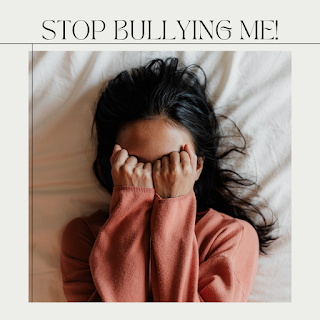Finding Light in the Darkness: Is Suicide the Answer to Life's Challenges?
Suicide is a topic that's close to my heart, because I'd contemplated about ending my life on numerous occasions in the past.
Globally, suicide remains a silent crisis, affecting countless individuals and families. Despite the stigma, it’s crucial to have open conversations about it, especially because it often stems from mental health struggles that require understanding and compassion.
How Prevalent is Suicide Globally?
With over 700,000 people dying by suicide every year globally, this equates to one life lost every 40 seconds. (https://www.who.int/health-topics/suicide#tab=tab_1)
This number may be higher due to under-reporting caused by stigma surrounding suicide in many cultures. (https://en.m.wikipedia.org/wiki/List_of_countries_by_suicide_rate)
Suicide is one of the leading causes of death globally.(https://www.who.int/news/item/17-06-2021-one-in-100-deaths-is-by-suicide) The global suicide rate is about 9 per 100,000 people, but it varies by region and country. (https://www.statista.com/chart/15390/global-suicide-rates/)
Why Do People Commit or Attempt Suicide?
People may commit or attempt suicide due to a complex interplay of psychological, social and environmental factors. Here are some possible reasons:
1. Mental Health Conditions
Mental health conditions such as depression, bipolar disorder, borderline personality disorder and PTSD come with a heightened risk of suicidal thoughts or attempts. (https://www.psychologytoday.com/us/basics/suicide/mental-health-conditions-suicide)
Studies have shown that 46% of people who die by suicide have a known mental health condition at the time of their deaths.(https://www.nami.org/About-Mental-Illness/Common-with-Mental-Illness/Risk-of-Suicide)
While mental health conditions are one of the most recognised causes of suicide, there are other significant contributors that are often overlooked, such as social isolation.
2. Social Isolation and Loneliness
Social isolation and loneliness can create a void in a person's heart, and over time it can have an adverse impact on their mental health.
Long-term social isolation and loneliness, in particular, have a significant impact on one's emotional and mental wellbeing, (https://www.verywellmind.com/the-impact-of-social-isolation-on-mental-health-7185458) and thereby making one more vulnerable to committing suicide.
Have you ever felt so isolated that it felt like no one could understand your pain? Loneliness can amplify feelings of despair, pushing people further into darkness.
3. Trauma and PTSD
PTSD can feel like being stuck in a perpetual nightmare, and therefore it’s not unusual for some people to entertain thoughts of suicide. (https://www.ptsduk.org/suicide-amongst-people-with-ptsd/)
Research has shown that people with a history of trauma and PTSD have a higher risk of suicidal thoughts, suicide attempts and suicide. (https://jedfoundation.org/resource/how-are-trauma-ptsd-and-suicide-linked/; https://psychcentral.com/ptsd/ptsd-suicide#treatment)
4. Job Loss and Unemployment
According to Psychology Today, as many as 1 in 3 people who die by suicide were unemployed at the time of their deaths. Suicide risk is dramatically heightened in the period just after a job loss, and long-term unemployment is strongly linked to suicide risk as well. In fact, there's evidence suggesting that suicide risk continues to rise the longer someone is unemployed. (https://www.psychologytoday.com/us/basics/suicide/risk-factors-suicide)
During a prolonged period of unemployment, I felt like I had no way out because of the constant interference from someone with extensive influence and power.
I became totally withdrawn and thoughts of suicide became my constant and only companion. Back then, suicide was probably the only way to take back control of my own life.
But thankfully, I lacked the guts to end my life even though I'd constantly thought about how I'd end it all. Thankful because I could now envision a future that's full of life and hope.
5. Relationship Problems
Breakups, divorce, rejection or the death of a loved one can trigger suicidal thoughts, especially if the person feels like they cannot cope with the emotional pain.
One in five deaths by suicide is linked to problems with current or former intimate partners, such as divorce, separation, romantic breakups, conflicts and violence from an intimate partner. (https://psychiatryonline.org/doi/full/10.1176/appi.pn.2023.06.6.7)
6. Hopelessness and Helplessness
A pervasive sense of hopelessness—believing that the future holds no possibility of improvement—is one of the strongest predictors of suicide. This is often accompanied by feelings of helplessness, where individuals feel that they're unable to change their circumstances.
Hopelessness, either in the short-term or long-term, has been found to contribute to suicidal ideation in many studies.
7. Cry for Help
People who attempt suicide may not necessarily want to end their lives. In fact , they might be crying out for help and not know how else to get it.
They just want to alert those around them that they're troubled by something. And they often choose methods that they think won't kill them in order to call attention to their challenges. (https://www.psychologytoday.com/us/blog/happiness-in-this-world/201004/the-six-reasons-people-attempt-suicide)
8. Bullying
Bullying may go completely unrecognised until the victim can no longer take it and sees suicide as the only way to escape the pain that they are experiencing. (https://mentalhealthdaily.com/2014/07/23/15-common-causes-of-suicide-why-do-people-kill-themselves/)
Being bullied is definitely not a harmless rite of passage. It has serious long-term consequences for the victim.(https://www.healthline.com/health-news/bullying-affects-victims-and-bullies-into-adulthood-022013#Worse-than-adult-verbal-abuse) It can affect the victim so deeply that they become withdrawn and eventually commit suicide.
Suicide isn't the Solution to Life's Challenges
Suicide may seem like the only solution when we're faced with seemingly hopeless situations. That was what I used to believe.
But having been through so many hopeless situations, I've come to realise that all these hopeless situations were not exactly totally hopeless after all, because despite the hopelessness, the utter despair, I've managed to pull through and now I'm mentally and emotionally stronger as a result.
Instead of taking your own life when faced with challenges, what can you do?
1. Reach Out to Someone
During some of the darkest moments of my life when I had no one I could talk to because my family and friends were 'bought over' by a tyrant, I literally had to reach out to total strangers to ask for support.
Trust me, it wasn't easy to reach out to total strangers. But I guess I knew instinctively that I'd to get help or I might really end up killing myself (even though I'd no guts to do so).
On a side note, you should exercise caution when reaching out to total strangers because not everyone is good.
2. Seek Professional Help
If you're neither comfortable reaching out to people around you nor reaching out to total strangers for help and support, you might want to consider seeking professional help instead, which is without doubt a good alternative.
A professional therapist can help you work on whatever that's troubling you and provide you with alternative solutions.
There are several types of therapies that a therapist might use to help people who're suicidal: 1. cognitive therapy for suicide prevention (CT-SP), 2. brief cognitive behaviour therapy (BCBT), 3. collaborative assessment and management of suicidality (CAMS) and 4. dialectical behaviour therapy (DBT)
All the above therapies have the following treatment elements*:
- Focus on suicidal behaviours rather than a global focus on depression
- Effective and thorough safety-focus planning (e.g., removing dangerous items)
- Thorough individualised plans for responding skillfully to clients' specific triggers
- Focus on action-oriented interventions
- Effectively teach you practical skills to manage overwhelming emotions and suicidal thoughts.
If you or someone you know is in crisis, calling a suicide and crisis hotline can be a vital step towards safety and support. These hotlines not only provide immediate assistance but also play a crucial role in suicide prevention.
Early intervention is key in suicide prevention. By reaching out to a hotline, individuals can receive the support they need before situations become critical. Hotlines are often manned by trained professionals who can provide guidance, coping strategies and resources for ongoing mental health support, making them an essential part of suicide prevention efforts.
Remember, reaching out for help is a sign of strength. Suicide prevention starts with open conversations and the willingness to seek support.
Alternatively if you prefer, you could even send text messages* to a helpline to get the support you need.
*Such text-based support may not be widely available yet.
4. Practise Mindfulness
The practice of mindfulness can help to enhance emotional regulation (https://www.verywellmind.com/the-benefits-of-mindfulness-5205137 and therefore improve emotional wellbeing.
The practice of mindfulness can help a person to manage stress by calming the amygdala, which is the part of the brain that's responsible for emotional reactivity, and keeps them grounded and in touch with a broader and gentler perspective when stressful events happen. (https://mindfulness.com/stress/mindfulness-for-stress-reduction)
5. Physical Activity
Physical activity can offer profound mental health benefits. (https://link.springer.com/article/10.1007/s12144-020-01152-x; https://bjsm.bmj.com/content/58/13/691)
Physical activity significantly decreases suicide attempts. (https://www.healio.com/news/primary-care/20230403/metaanalysis-exercise-significantly-decreases-suicide-attempts) According to Science Daily, a study has shown that regular exercise significantly reduces both suicidal thoughts and suicide attempts among students who are bullied. Additionally, exercise reduces suicide attempts by 23% among bullied teens. (https://www.sciencedaily.com/releases/2015/09/150921095433.htm)
I've personally benefited from physical activity. There were times when I felt really depressed and I'd just go for long walks. And after the walks, I actually felt better.
6. Music
Music provides a cathartic release of pent-up emotions and soothes the brokenness of one's soul.
Music helps to channel one's frustration and purge negative emotions, such as anger and sadness, from one's innermost being. (https://www.psychologytoday.com/us/blog/science-of-choice/202205/how-we-experience-music)
7. Journaling
Expressing your emotions through writing is a good form of cathartic release. That's at least true for me.
So if you enjoy writing or journaling, you might want to give it a try. Alternatively, you might want to express your pain through writing poems or song lyrics, which are things I do to help me deal with painful emotions.
8. Support Groups
Support groups play a critical role in helping individuals navigate through life's challenges and aid in their recovery. These groups provide a safe environment where individuals facing similar difficulties can come together to share their experiences, offer support and find solace in knowing they're not alone. (https://www.doverecovery.com/blog/types-of-support-groups)
Being in a support group surrounded by others who're going through similar challenges can provide a sense of belonging and help to reduce feelings of isolation.
Conclusion
In confronting the complex issue of suicide, it is crucial that we approach the topic with sensitivity and urgency. By understanding the underlying factors that contribute to suicidal thoughts and behaviours, we can better support those in need and create environments where open dialogue and compassion prevail.
While life can sometimes feel overwhelming, it's important to remember that every problem - no matter how insurmountable it may seem - has a solution. Suicide should never be one of them.
If you or someone you know is struggling with suicidal thoughts, please reach out for help. Together, we can create a future where mental health is prioritised and no one feels alone in their darkest moments.
Take it from someone who’s been there. There’s always hope. Stay strong. With love, Annie.
Cheers,
Annie Chan
(P/s: My next blog post will be published on 26 Dec 2024.)
NOTES
1. Check out my website:
https://www.elevatewellnesscircle.com/
2. Check out my affiliate programme:
https://www.elevatewellnesscircle.com/affiliate
3. Try for FREE: power recharge therapy, power foot detox therapy & acugraph energy analysis! (https://energia.sg/free?ref=anniechan)





.png)











